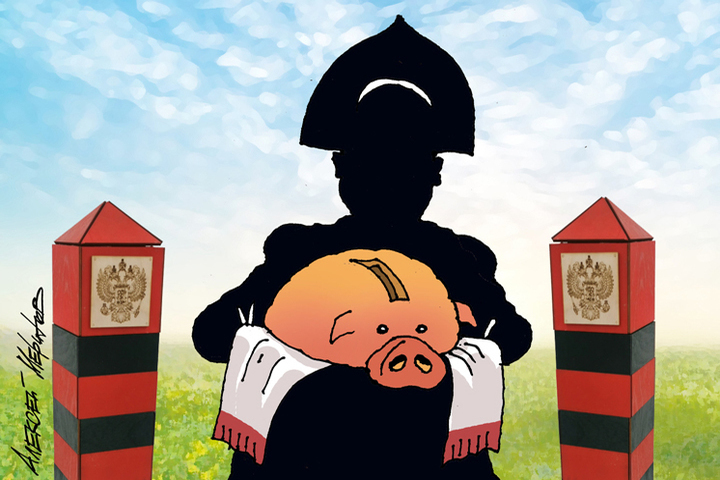Threshold for online shopping will be lowered: how much extra you will have to pay for imported goods
[ad_1]

The authorities intend to revise the limit on duty-free import of purchases from abroad
Russia is considering changing the limit on duty-free purchases in foreign online stores. Now, within a month, without additional payments, you can order goods from other countries worth up to €1 thousand. They are going to lower this threshold to €500 or €200, or completely reset it, obliging people to pay a fee regardless of the purchase price. According to expert estimates, if the threshold for duty-free purchases is reduced, this will reduce the choice for buyers and lead to a drop in sales of marketplaces, as Russians will begin to refuse to purchase goods for which they must pay duty. The authorities must make a decision by March 31.
The topic of reducing the limit on duty-free purchases in foreign online stores arises with alarming regularity. Just the other day, another interdepartmental meeting on this topic took place. Among the proposals voiced: extension of the current threshold of €1 thousand; its reduction to €500 or €200; complete abolition followed by the introduction of duties. The goal of the initiative is to equalize the working conditions of foreign and domestic online stores.
Previously, the threshold for duty-free trade in the Eurasian Economic Union (EAEU) was €1 thousand and 31 kg. But after 2019 it was reduced several times – to €500 and even to €200. Then, in April 2022, the threshold was raised back to a thousand euros – in order to support the economy and more effectively combat sanctions. Then small businesses took on part of the burden of filling the domestic market with goods. The government must make the next decision regarding the size of the threshold by March 31 of this year.
Departments’ opinions on the advisability of reducing the limit were divided. According to sources, the Ministry of Finance, the Federal Customs Service (FCS), the Ministry of Economic Development and the Ministry of Industry and Trade insist on reducing it. The Chamber of Commerce and Industry (CCI), the Federal Antimonopoly Service (FAS) and logistics operators are in favor of maintaining the current threshold.
The fears of marketplaces are justified, since now the vast majority of purchases abroad (more than 75%) are goods with a cost of less than €1 thousand, says managing partner of B&C Agency Ivan Samoilenko. At the end of last year, the volume of purchases made on foreign sites by Russians amounted to 197 billion rubles
“After reducing the limit on duty-free purchases, the market may lose over 30% of last year’s volume in monetary terms. However, specific figures have not yet been announced as to what the limit will be – €200 or €500. A lot will depend on the specifics,” continues Samoilenko.
But, according to the expert, there is logic in this decision – for the Ministry of Finance and other departments. Since at the end of 2023, state revenues from exports decreased by a total of 30%, new tools are needed to replenish the treasury. “Duties are one of the legal and economically viable options that the state can use to fill the budget,” notes MK’s interlocutor.
According to Anna Vovk, a member of the Council on Financial, Industrial and Investment Policy of the Chamber of Commerce and Industry of the Russian Federation, this measure is aimed at developing import substitution so that consumer goods are produced in Russia. The point is that Russians most often order from foreign sites. These are consumer goods: from nails and plastic hairpins to complex electronic devices.
“In order for Russian consumer goods to develop, it is necessary to create working conditions for small and medium-sized businesses; a systemic modernization of the industry is needed. With the current rates on commercial loans, the development of this area is almost impossible. The only thing that will happen if the threshold is lowered is a rise in prices,” says Vovk. According to her, in this case, we will not lose the range of goods, but their cost will increase. “This decision will only hit the consumer. He will have to either stop consuming the usual goods or look for them elsewhere. But the measure is unlikely to stimulate direct production in Russia,” the expert believes.
[ad_2]
Source link






